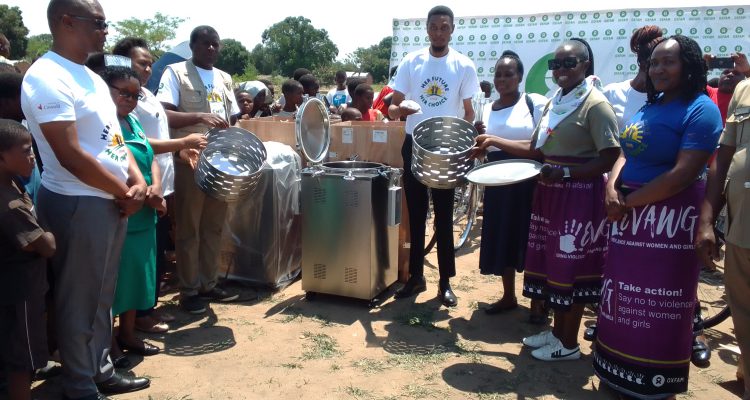
Balaka District Commissioner Tamanya Harawa has issued a stern warning to traditional leaders in the district against promoting harmful cultural practices which put young people into engaging in early marriages as well as getting teenage pregnancies.
Harawa made the call when he was presiding over an exit meeting for the ‘Her Future her Choice’ project, which was being implemented in the district by a consortium of the Centre for Alternatives for Victimized Women and Children (CAVWOC) and Family Planning of Malawi with technical expertise from Oxfam in Malawi.
While commending the project for reducing the prevalent rate of early marriages and teenage pregnancies in the areas of traditional authorities Kalembo and Amidu, Harawa said there is still a big gap to be filled, cautioning some traditional leaders for failing to eliminate some of the harmful cultural practices in the area.
“As a district council, we applaud our partners for the excellent interventions they have been carrying out. We are happy to note that most of the milestones which they earmarked have been achieved. However, we can also see that we have not done well on some of the specific indicators like on issues of teenage pregnancies and early marriages,”
“I therefore urge all the community structures heads to take a pro-active role in making sure that they should do away with such practices,” said Harawa.
CAVWOC programmes Manager Treassar Msokera said since the inception of the project in 2019, the project has strengthened sexual and reproductive health and rights for adolescent girls and young women by, among other things, capacitating them with vital information to help them make informed decisions about their health and rights.
According to Msokera, since 2019, 945 young people who dropped out of school have been enrolled back to school while 212 have been whisked away from early marriages despite facing stiff opposition because of some harmful cultural beliefs.
“As we are phasing out the project, let me highlight that we faced stiff opposition bordering on cultural practices and taboos around issues of contraceptives, which made most young people not accept using contraceptive methods.
“However, due to our engagements meetings with various community structure leaders, we were able to convince the community,” said Msokera.
She further said the project has also increased the number of young people who are now accessing health services as compared to the period before the inception of the project.
Esnarth Taipei, 34, says she has really benefitted from the project, and today, she is working as a disease control and health surveillance assistant at Nandumbo Health Center.
Esnarth, a mother of 3, defied all odds and enrolled back to school after she was abandoned by her husband who later fled away to South Africa to work as a migrant worker.
“Through various training and capacity building sessions which I got from her future project, I was motivated to go back to school, and here I am a proud health surveillance assistant,” she recalls.
CAVWOC and Fpam joined forces in implementing the project in Balaka, with a catchment area of traditional authorities Kalembo and Amidu.
The project was financially supported with funds from Global Affairs Canada.














